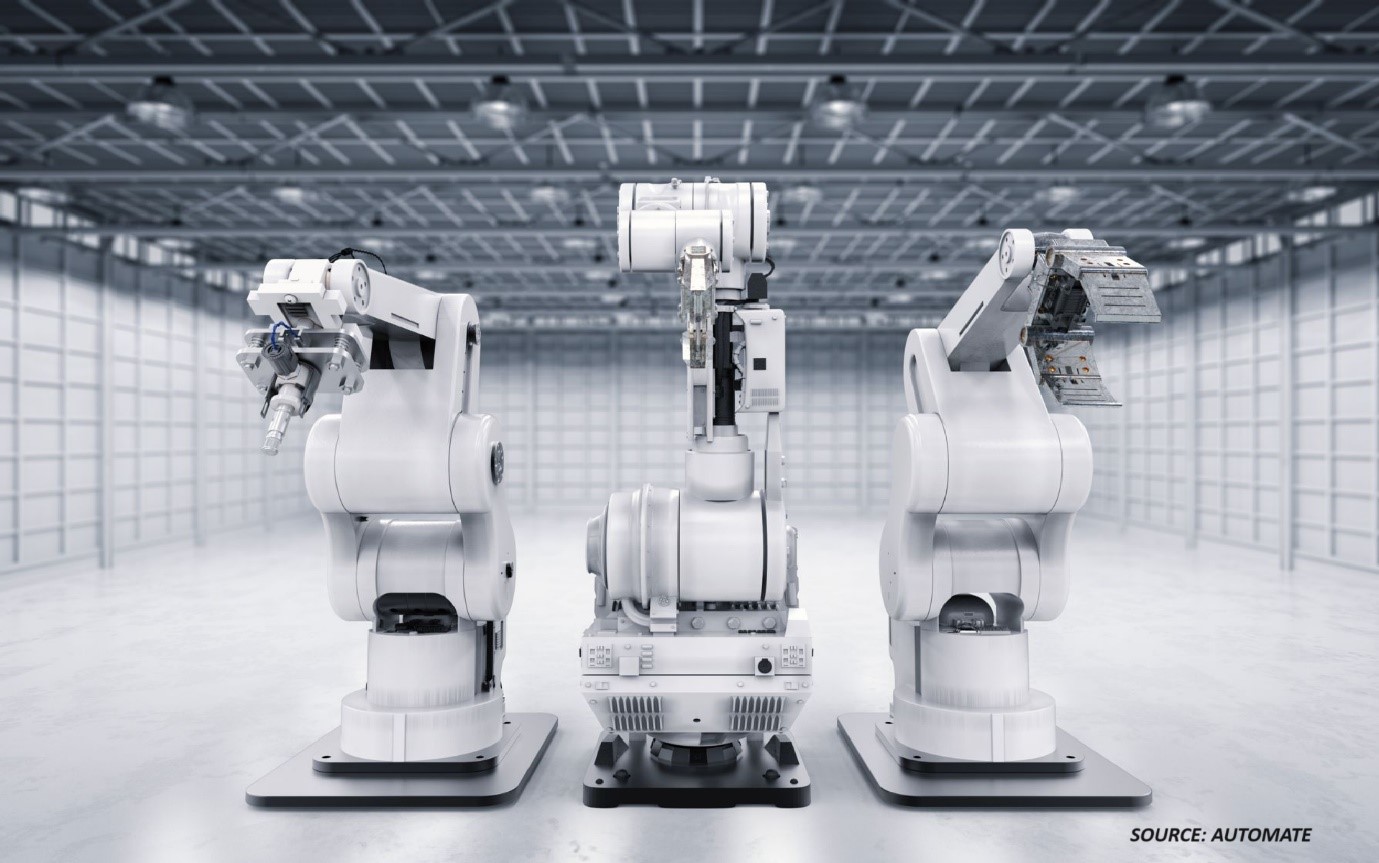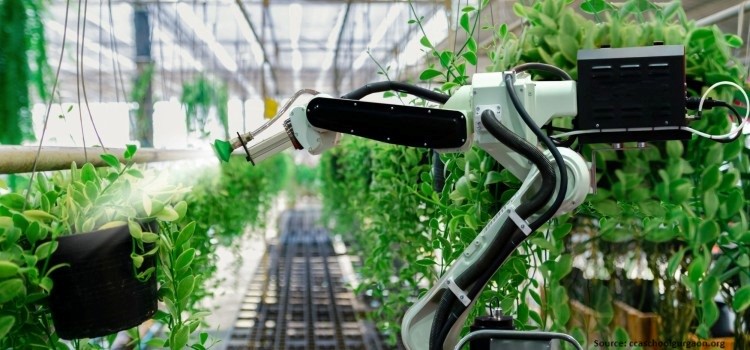
AI Maker and Teaching Kits Market by Technology (Deep Learning & Machine Learning and Natural Language Processing (NLP)), by Application (Virtual Facilitators and Learning Environments, Intelligent Tutoring Systems (ITS), Content Delivery Systems, Fraud and Risk Management, Student-Initiated Learning, and Others (Education Data Management, Job Recommendation, and Training and Development)), by Component (Solution and Services), Deployment Mode (Cloud and On-Premises), and by End User (Educational Institutes, Educational Publishers, and Others (Massive Open Online Courses (MOOCS), Virtual Learning Environments (VLES), Computer-Based Tests, Adaptive Learning, and Immersive Learning) – Global Opportunity Analysis and Industry Forecast 2022-2030
Market Definition:
The AI Maker and Teaching Kits Market size was valued at USD 1.95 billion in 2021, and is predicted to reach USD 30.18 billion by 2030, with a CAGR of 32.1% from 2022 to 2030.
AI maker and teaching kits are software development kits that abstract analytics, libraries, data science platforms, and frameworks. They help software engineers to assimilate artificial intelligence (AI) into existing and new applications. Also, they play an important role in teaching advanced skills and integrating the best practices among devices & software for engineers. Moreover, AI maker kits had reduced the adoption barriers in the deployment of AI capabilities for citizen data scientists and software engineers. AI technologies such as deep learning and machine learning are applied to education and training software to improve learning experience & performance.
Market Dynamics and Trends:
The demand for AI maker and teaching kits is increasing owing to rising integration of machine learning into AI robot starter kits that include 4WD robots which provides advanced features such as face recognition, vision line-tracking algorithm, and object recognition algorithm for teaching students. In addition, the growing demand for AI technology to enhance the education system for solving academic problems and fulfilling the requirements of students are driving the market growth.
Also, the growing initiatives of various governments across the world for teaching students about robotics and coding with AI-enabled computer systems and drone kits are expected to propel the growth of the market during the forecast period. For instance, in July 2022, SP Robotics launched SP Robotics Maker Lab for students to teach them about robotics and coding. These Smart Maker Labs blend conventional classroom learning with AI-driven methods to assure quality learning. These Labs were equipped with AI-enabled computer systems and robotic or drone Kits, and other maker Kits, where the student can also learn with rich animations and real-time concepts.
However, lack of skilled professionals and insufficient resources to ensure data safety are expected to restrain the growth of the market during the forecast period. On the other hand, increase in adoption of smart classes in schools and teaching institutes is expected to create lucrative opportunities for the AI maker and teaching kits market players in the future.
Market Segmentations and Scope of the Study:
The global AI maker and teaching kits market is segmented based on technology, application, component, deployment mode, end user, and geography. Based on the technology, the market is classified into deep learning & machine learning, and natural language processing (NLP). Based on the application, the market is classified into virtual facilitators and learning environments, intelligent tutoring systems (ITS), content delivery systems, fraud and risk management, student-initiated learning, and others (job recommendation, education data management, and training and development). Based on component, the market is sub-divided into services and solutions. The solution segment is further classified into software tools and platforms. The services segment is further segmented into managed services and professional services. Based on deployment mode, the market is classified into cloud and on-premises. Based on end user, the market is sub-segmented into educational institutes, educational publishers, and others (massive open online courses (MOOCs), virtual learning environments (VLEs), computer-based tests, adaptive learning, and immersive learning). The geographical breakdown and analysis of each of the aforesaid segments include regions such as North America, Europe, Asia-Pacific, and RoW.
Geographical Analysis:
North America holds the lions share of the global AI maker and teaching kits market at present and is expected to boost the market growth during the forecast period. This is attributed to factors such as use of Dobot AI Teaching Kit in schools which allows educators and students to experience real-world AI scenarios. This kit uses OCR text recognition, image recognition, voice recognition, and face recognition for teaching students.
Moreover, the presence of key players such as Microsoft Corporation, Intel, and NVIDIA Corporation launching various innovative products, which is expected to drive the market in the region.For instance, in November 2021, NVIDIA Deep Learning Institute (DLI) Teaching Kit Program launched Belamy a new course for university educators to teach edge AI and robotics. Students will be learning through a combination of lecture slides, hands-on labs, and teaching materials centered around edge computing, deep learning, the internet of things, video analytics, and autonomous robotics.
However, Europe is expected to show a steady rise in the AI maker and teaching kits market, owing to increase in expenditure in the education sector by the government of the region. According to Eurostat, government expenditure in the EU on education amounted to USD 734.05 billion or 5.0 % of GDP in 2020. Also, the use of AI-based teaching kits in schools and universities due to the high income of the people in the region allows them to adopt new technologies drives the market growth in this region. For instance, in 2019, public spending on education relative to GDP was highest in Sweden (7.1%) and Denmark (6.4%) in the entire region.
Competitive Landscape:
Various market players operating in the AI maker and teaching kits market include Microsoft, Intel, Pearson, Jenzabar, Google, ANS Group Limited, Cognizant, Carnegie Learning, Century-Tech, and Nuance Communications.
These manufacturers are actively indulging in strategies that include product launches for increasing their growth as well as geographical reach.
For instance, in July 2022, Intel introduced the first set of open-source AI reference kits that was specially designed to make AI more accessible to organizations in on-premises, cloud, and edge environments. This kit included AI model code, end-to-end machine learning pipeline instructions, libraries, and Intel oneAPI components that enable data scientists and developers to learn how to deploy AI faster with higher accuracy across healthcare, manufacturing, retail, and other industries.
Also, in November 2019, Pearson launched Aida Calculus, the first AI-powered tutoring app, that was designed to help students for understanding the difficult topics of mathematics. It was first in the education industry to use artificial intelligence (AI) for learning.
Key Benefits:
-
The AI maker and teaching kits market report provides the quantitative analysis of the current market and estimations from 2022 to 2030. This analysis assists in identifying the prevailing market opportunities to capitalize on.
-
The study comprises of a deep dive analysis of the AI maker and teaching kits market trends including the current and future trends for depicting the prevalent investment pockets in the market.
-
The information related to key drivers, restraints and opportunities and their impact on the AI maker and teaching kits market is provided in the report.
-
The competitive analysis of the market players along with their market share in the AI maker and teaching kits market is mentioned.
-
The SWOT analysis and Porter’s Five Forces model are elaborated in the study.
-
The value chain analysis in the market study provides a clear picture of the stakeholders’ roles.
Key Market Segments:
By Technology
-
Deep Learning & Machine Learning
-
Natural Language Processing (NLP)
By Application
-
Virtual Facilitators and Learning Environments
-
Intelligent Tutoring Systems (ITS)
-
Content Delivery Systems
-
Fraud and Risk Management
-
Student-Initiated learning
-
Others
-
Education Data Management
-
Job Recommendation
-
Training and Development
-
By Component
-
Solution
-
Software Tools
-
Platforms
-
-
Services
-
Professional Services
-
Managed Services
-
By Deployment Mode
-
Cloud
-
On-Premises
By End User
-
Educational Institutes
-
Educational Publishers
-
Others
-
Massive Open Online Courses (MOOCs)
-
Virtual Learning Environments (VLEs)
-
Computer-Based Tests
-
Adaptive Learning
-
Immersive Learning
-
By Geography
-
North America
-
U.S.
-
Canada
-
Mexico
-
-
Europe
-
U.K.
-
Germany
-
France
-
Italy
-
Spain
-
Rest of Europe
-
-
Asia-Pacific
-
China
-
India
-
Japan
-
South Korea
-
Australia
-
Rest of Asia-Pacific
-
-
RoW
-
UAE
-
Saudi Arabia
-
South Africa
-
Brazil
-
Remaining countries
-
KEY PLAYERS
-
Microsoft
-
Intel
-
Jenzabar
-
Google
-
ANS Group Limited
-
Cognizant
-
Carnegie Learning
-
Century-Tech
-
Nuance Communications
-
Pearson




 Speak to Our Analyst
Speak to Our Analyst


































